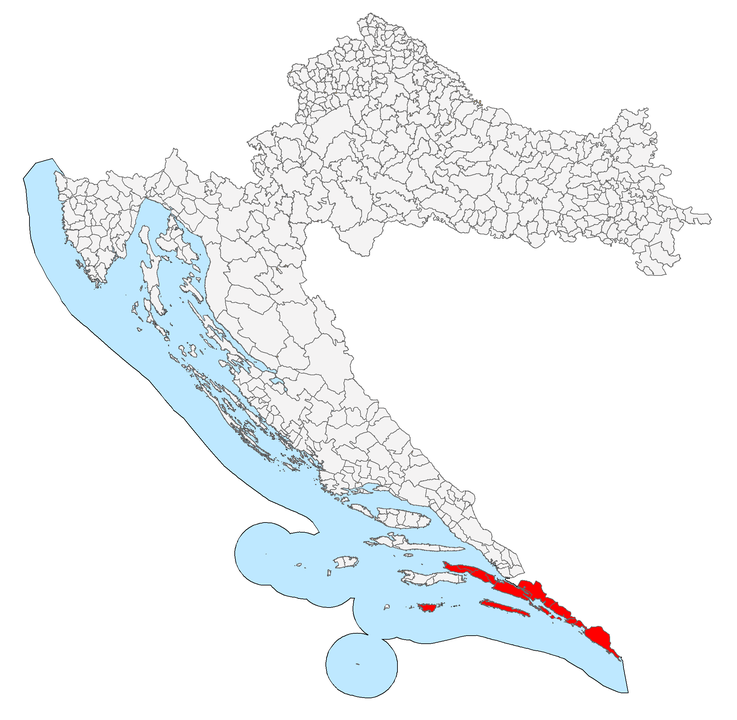The list of countries recognizing American independence in Wikipedia cites, in the case of the Republic of Ragusa, an article from 1956 by a Jugoslav historian:
Muljačić, Žarko (1956-06-04). "Odnosi Dubrovnika i Sjedinjenih Američkih Država". NAŠE MORE: Znanstveni časopis za more i pomorstvo. 3 (1): 65–70.
(The text has been scanned with an OCR that had no Serbocroatian dictionary installed, so there might be minor errors. Also, the translation is by Google Translate using its Croatian module, which again might not be precisely the language of the original. Anyone with more understand of the languages involved is invited to correct errors.)
According to his evaluation of letters between the Ragusan consul to Paris, Francesco Favi, and the Ragusan Senate, the 1783 recognition unfolded like this:
Nazalost nije sacuvano pismo Favija dubrovackoj Vladi od 20. II, u kome je ovaj predlagao, da sluzbeno posjeti Franklina i time prizna novu drzavu, Senat mu je odgovorio (Litterae Ponentis, ubuduce skraceno Lp, 115, 65 od 19. V. 1783.) da je njegov prijedlog raspravljen, ali da jo3 nije vrijeme za to, iako je to potrebno. Tek onda kad sve drzave, a osobito Engleska, priznadu slobodu tih kolonija, moze i on poci u posjetu k americkim predstavnicima, preporuciti im dubrovacku plovidbu i moliti slobodan ulaz u njihove luke. Kao sto se vidi, Dubrovnik je nastupao vrlo oprezno, u strahu, da ne izazove protiv sebe gnjev pomorske velesile Engleske i njenih saveznika. Badava je Favi 31. III laskavo pisao o velikoj koristi, koju ce donijeti trgovina sa SAD, te se i Austrija sprema da u ime svojih posjeda u Flandriji (danasnja Belgija) sklopi s Kongresom vrlo povoljan trgovacki ugovor (N. 2795).
U ljeto 1783. otekivalo se potpisivanje mira u Versaillesu, sto je uslijedilo 3. rujna i. g. Sve su drzave vec bile priznale novu republiku. Cujmo, kako je izgledao cin, kojim je Dubrovnik de iure priznao Ameriku. Favi 7, srpnja 1783. javlja (N, 2802):
»Nezavisnost SAD konacno je priznata od sviju. Americki opunomocenici vec su primili dopis, da je Kongres odobrio mirovne preliminarne pregovore, te su posli u protokolarnu posjetu stranim diplomatima, koji ovdje rezidiraju. Ovi su im je, kako je to obicaj, uzvratili. Prema Vasim uputama posao sam k njima i nakon sto sam im izrucio pozdrave Vasih Ekselencija, preporucio sam im brodove podanika Vase Republike izjavivsi, da su i oni Zeljni, da se okoriste prednostima, koje Evropi pruza nezavisnost i sloboda amekanska. Ovo im se jako svidjelo, pa su mi odgovorili, da dubrovaéki brodovi mogu kao i svi drugi brodovi ulaziti u americke luke sigurni, da ce biti lijepo primljeni i da ce naici na sve one pogodnosti, koje uzivaju i lade drugih nacija...
Unfortunately, Favi's letter to the Government of Dubrovnik dated 20 II has not been preserved, in which he proposed to officially visit Franklin and thereby recognize the new state, but the Senate replied to him (Litterae Ponentis, abbreviated Lp, 115, 65 of 19 V. 1783.) that his proposal has been discussed, but that it is not yet time for it, although it is necessary. Only when all the countries, especially England, recognize the freedom of those colonies, he can start visiting the American representatives, recommend to them Dubrovnik ships and ask for free entry to their ports. As you can see, Dubrovnik acted very cautiously, in fear of provoking the wrath of the naval superpower England and its allies. On 31 III, Badava wrote to Favi flatteringly about the great benefit that trade with the USA would bring, and that Austria was also preparing to conclude a very favorable trade agreement with Congress on behalf of its possessions in Flanders (today's Belgium) (N. 2795).
In the summer of 1783, the signing of the Treaty of Versailles took place, which followed on September 3rd of that year. All states had already recognized the new republic. Let's hear what the act was like, by which Dubrovnik de iure recognized America. Favi on 7, July 1783 reports (N, 2802):
»The independence of the USA is finally recognized by everyone. The American plenipotentiaries have already received the letter that the Congress has approved the preliminary peace negotiations, and they went on a protocol visit to the foreign diplomats who reside here. As is their custom, they returned it to them. According to your instructions, I went to them and after I gave them the greetings of Your Excellencies, I recommended to them the ships of the subjects of your Republic, declaring that they are also willing to take the advantages that American independence and freedom offer to Europe. They liked this very much, so they replied that Dubrovnik ships, like all other ships, can safely enter American ports, that they will be well received and that they will encounter all the benefits that ships of other nations enjoy...
